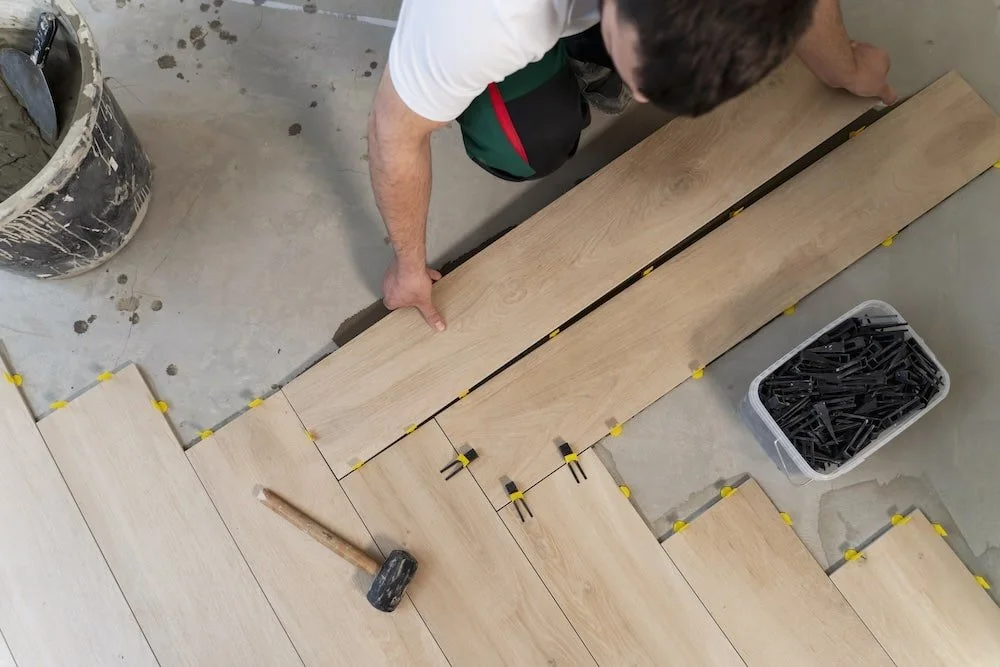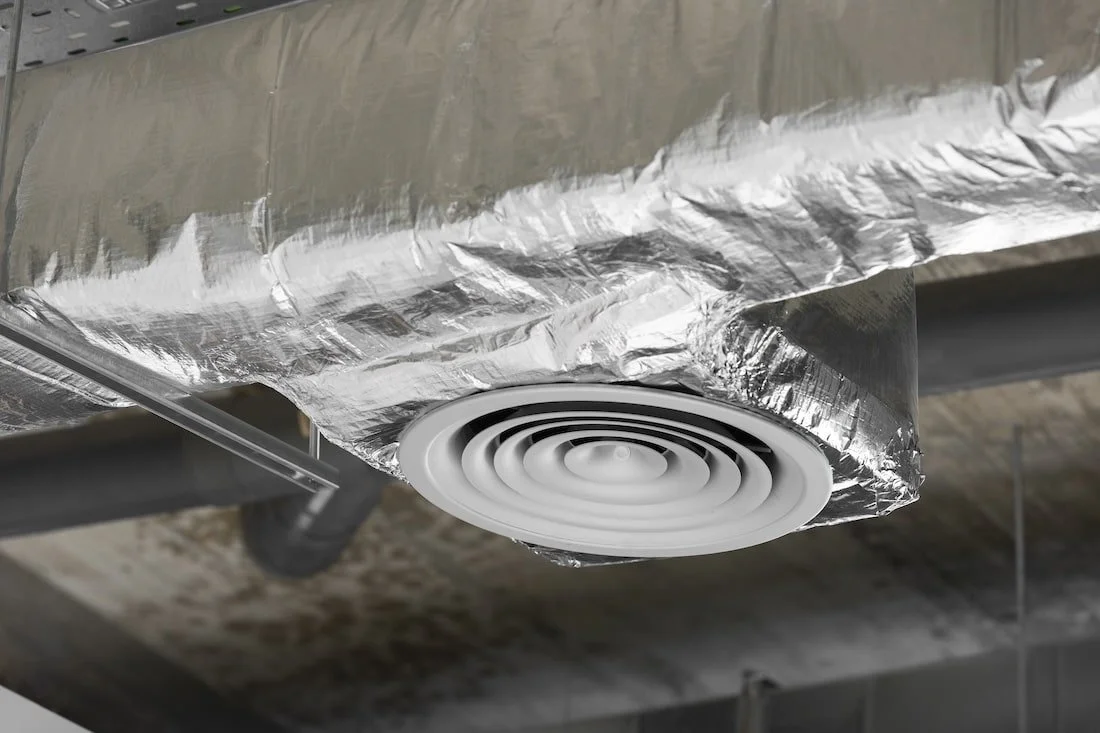Basement Renovation: Key Considerations Before You Begin
Renovating your basement isn't just about enhancing aesthetics; it is a wise investment that can redefine the entire dynamics of your living space. Exploring the potential of the area beneath your home holds the promise of unlocking additional square footage and increasing the overall value of your property.
Whether you have specific basement renovation ideas in mind or you are seeking inspiration for a finished basement, there are important factors to know before starting on your renovation journey. Let’s dive in, to know more about these factors in detail.
Planning Stage
Define the Purpose:
Have you ever felt overwhelmed by the potential of your basement? If so, you're not alone. The first step in renovating your basement is to determine its intended use. Whether you envision it as an entertainment area, a serene home office, a dynamic gym or perhaps a rental unit? Knowing the intended use will shape the entire renovation process.
Setting Budget:
Now that we've clarified the purpose, let's talk numbers. The second crucial step in the Planning Stage is setting a budget. We're not just talking about random figures; we're talking about understanding the intricacies of basement finishing costs and creating a financial roadmap for your renovation adventure.
Understanding average renovation costs in your city is crucial. To help you set a realistic budget for your basement renovation project, check out our blog on How Much Should You Spend on Renovations. This resource provides a detailed breakdown of renovation costs based on the type of renovation, which will help you plan more effectively.
The financial aspect of any renovation project can be challenging due to budget constraints and the fear of unforeseen expenses. Understanding the cost, finding reliable basement renovation contractors, and exploring finished basement ideas are essential steps in creating a space that meets your needs and budget.
Renovating your basement without a clear budget can lead to financial roadblocks, unexpected expenses, and an incomplete transformation. Renovating your basement without a clear budget can lead to unexpected expenses, stalling your project midway.
2. Legal and Safety Considerations
Obtaining Permits:
Permits ensure that your renovation project complies with building codes and regulations, ensuring the safety of the occupants and the integrity of the structure. The building codes are in place to ensure that the renovation meets minimum safety requirements, such as proper electrical wiring, adequate ventilation, and fire safety measures.
To obtain permits, you will need to submit detailed plans and designs of your basement renovation to your local building department. This includes information about the proposed layout, electrical and plumbing systems, as well as any structural changes you plan to make.
It is important to be thorough and accurate in your documentation to ensure that the renovation is approved without any delays or rejections.
Addressing Safety Concerns:
In addition to obtaining the necessary permits, it is crucial to address safety concerns before starting your basement renovation project. The basement is unique in terms of its potential safety hazards, and taking appropriate measures will help ensure a safe and secure environment for you and your family.
3. Structural Integrity
Before beginning any renovations, it is crucial to assess the structural integrity of the basement. Ensure that the foundation is sound and free from any significant structural issues. If necessary, consult with a professional contractor for an inspection and recommendations.
Inspecting Foundation Ensuring Stability:
Canada’s diverse weather conditions can pose challenges, making a thorough assessment vital. A thorough inspection by a professional can uncover any existing structural issues that need to be addressed.
Look for signs of cracks, uneven settling, or water seepage. These indicators can point to underlying foundation problems that may require repairs or reinforcement. By identifying and resolving these issues early on, you can build a solid and sturdy foundation for your basement renovation.
According to a Toronto Building Report, issues with foundations are common due to the region's soil composition. Different types of soil in the cities of Ontario can impact foundation stability.
Clay soils, prevalent in some areas, are prone to expansion and contraction with moisture levels. On the other hand, sandy soils may lack stability. An inspection by a professional structural engineer can provide insights tailored to your specific location.
According to the Toronto Real Estate Board (TREB), a significant percentage of homes in Toronto & GTA were built before the 1970s. This age factor alone makes foundation inspection crucial, as wear and tear over the years can manifest in structural issues.
Flooring Considerations
Moisture-Resistant Materials: Choosing suitable flooring options for basements requires careful consideration due to the unique conditions they often present. Basements are well-known for being prone to moisture problems.
According to Environment and Climate Change Canada, Canadian cities experience an average annual precipitation of around 831 mm. This poses a significant challenge when selecting flooring materials.
Homeowners in Toronto and the GTA need to consider the high humidity levels during the summer months. Opting for moisture-resistant materials like vinyl, ceramic tiles, or engineered wood can prevent warping and mold growth.
The Canada Mortgage and Housing Corporation (CMHC) notes that basement flooding is a prevalent issue in the Greater Toronto Area, with various factors, including heavy rainfall and aging infrastructure, contributing to the problem.
Waterproofing:
Exterior Waterproofing: Applying waterproof coatings to the exterior foundation walls, installing drainage systems, and ensuring proper grading can prevent water from reaching the basement in the first place.
Interior Waterproofing: Interior sealants, waterproof membranes, and sump pump systems can provide an additional layer of protection against water infiltration.
4. Electrical and Plumbing
Electrical Wiring
Planning the electrical layout of your basement renovation is essential to meet your power needs for lighting, outlets, and modern technology. A well-designed electrical plan ensures a seamless integration of modern amenities while prioritizing safety and functionality.
According to the Canadian Electrical Code, all electrical work done in Ontario must comply with the regulations outlined in the code. Hiring a licensed electrician is vital to ensure that all electrical work is done safely and meets these regulatory standards. A professional electrician will be able to assess your power needs, run new wiring, and properly position outlets and lighting fixtures.
Consider your lighting requirements and the locations of electrical outlets. Properly spaced outlets will provide convenient access to power wherever you need it. Additionally, if you plan to set up a home theatre or incorporate other technology systems, ensure you have the necessary electrical capacity to accommodate these devices.
Plumbing
Plumbing considerations become crucial if you plan to include a bathroom or kitchenette in your basement renovation. Deciding on plumbing fixtures and layout will be essential for creating a fully functional basement space.
Before you begin, it's important to understand that adding plumbing fixtures to your basement may require modifications to the existing plumbing system. This may involve extending water supply lines, installing drain lines, and ensuring proper venting.
Ensure that all plumbing work is done by a licensed plumber who is knowledgeable about local building codes.
According to the Canadian Home Builders' Association, adding a bathroom to a basement is one of the most common renovations. Consider the layout and design of the bathroom, including the placement of fixtures such as the sink, toilet, and shower or bathtub.
Think about the type of plumbing fixtures you want to install, such as low-flow toilets and water-saving faucets, for both environmental and cost-saving reasons.
For kitchenettes or wet bars, plan for the installation of a sink, countertop area, and potentially a dishwasher. Ensure that the plumbing layout allows for proper drainage and connects to the existing sewer system.
5. Lighting and Ventilation
Maximizing Natural Light:
Basements typically have fewer windows or even no windows at all, which can make them feel dark and gloomy. However, there are several strategies to incorporate natural light and brighten up the space.
One creative solution is adding light tubes or sun tunnels. These are like skylights, but they can be installed even without direct access to the roof. They bring in natural light through reflective tubes, providing a pleasant and diffused glow.
Additionally, using light-coloured paint on walls, ceilings, and floors can help reflect sunlight, making the space feel brighter and more open.
Artificial Lighting:
In areas where natural light cannot be maximized, artificial lighting plays a crucial role. Choosing appropriate lighting fixtures for different areas is essential to enhance functionality and ambiance.
Ambient lighting, such as recessed ceiling lights or chandeliers, can provide overall illumination. Task-specific fixtures, such as desk lamps or under-cabinet lights, are perfect for reading corners or workspaces.
It's important to select LED or energy-efficient bulbs to minimize energy consumption. By layering lighting sources, you can create a warm and cozy atmosphere in your basement.
Ventilation System:
Proper airflow and ventilation are crucial for a healthy living environment. Basements can be prone to humidity and moisture issues, which can lead to mold and mildew growth.
Ensuring adequate ventilation helps maintain optimal air quality. Installing ventilation systems, like exhaust fans or dehumidifiers, can help control moisture levels and prevent stagnant air.
Consider incorporating air vents or ducts that connect your basement to the rest of the house's heating and cooling system, ensuring a balanced airflow throughout. This will create a more comfortable living space, regardless of the season.
6. Insulation for Energy Efficiency
Proper insulation not only regulates temperature but also contributes to energy efficiency and cost savings. By choosing suitable insulation materials and techniques, you can create a more comfortable and sustainable living space.
Benefits of Proper Insulation:
Insulating your basement offers numerous benefits, with energy efficiency and cost savings taking center stage. By preventing heat loss during the winter and keeping the cool air inside during the summer, insulation helps regulate the temperature in your basement. This, in turn, reduces the strain on your heating and cooling systems, resulting in lower energy bills.
Additionally, proper insulation helps minimize drafts and prevents moisture from seeping into the basement, mitigating the risk of mold growth and water damage. By reducing energy consumption and creating a more environmentally friendly home, you'll be contributing to a sustainable future.
Suitable Insulation Materials for Basements:
Choosing the right insulation material is crucial for optimal thermal performance. Fiberglass insulation is a popular option due to its affordability, versatility, and excellent thermal resistance.
It comes in rolls or batts, making it easy to install between wall studs and ceiling joists. Foam board insulation is another suitable choice for basements, as it has a high insulating value and can resist moisture effectively.
It can be used on basement walls, floors, and ceilings, providing a continuous insulation layer. It's important to install a vapour barrier along with the insulation to prevent moisture from seeping through and causing damage.
Let's take a look at Canadian statistics. According to Natural Resources Canada, up to 40% of a home's heat loss occurs through the basement and foundation walls. In cold Canadian regions, such as Alberta and Ontario, where temperatures can drop significantly, proper insulation becomes even more critical.
By insulating your basement, you can significantly reduce your energy consumption, thereby decreasing your carbon footprint and contributing to national energy-saving efforts.
7. Fire Safety
As with any living space, fire safety is of utmost importance. Ensure that you have working smoke detectors in the basement and that they are properly placed and regularly maintained. Consider adding fire-resistant materials to walls and ceilings and installing fire extinguishers in easily accessible locations.
8. Hiring Professionals v/s DIY
Deciding between hiring professionals or opting for a DIY approach in basement renovation involves weighing key factors. Professionals can expedite the process, ensuring quality work and potentially saving money in the long run.
Hiring a contractor is crucial for tasks beyond DIY capabilities. They bring expertise to structural changes, electrical and plumbing work, and mold remediation, ensuring the project's success, compliance with standards, and long-term safety. Balancing DIY enthusiasm with professional input ensures a well-rounded, cost-effective, and satisfying renovation.
DIY options:
Painting and Finishing: Giving your basement a fresh coat of paint and choosing finishes for the walls and floors are tasks that can be easily accomplished by homeowners.
Installing Flooring: Depending on the type of flooring chosen, many homeowners find success in installing laminate, vinyl, or engineered wood floors themselves. Easy-to-install flooring options can save money while adding a personal touch to the space.
Decor and Furnishing: Once the structural and technical aspects are addressed, decorating and furnishing your renovated basement is an enjoyable DIY phase.
Deciding factor:
The decision depends on balancing cost, time, and skill.
Budget: Professional services come with a cost, but DIY projects can also add up to material expenses and potential mistakes. Assess your budget realistically and compare it with estimates from professionals.
Time Commitment: DIY projects often take longer, especially if you're learning as you go. Professionals can expedite the process, which might be crucial if you have time constraints.
Skill Level: Assess your skills honestly. If a task requires expertise beyond your capabilities, it's wise to hire professionals to avoid costly errors and ensure quality work.
Conclusion:
By considering these must-know facts, you'll be well-prepared to initiate a successful basement renovation project. Ensure proper planning, budgeting, and adherence to legal requirements. Thoroughly inspect the foundation, choose suitable flooring, and pay attention to lighting, ventilation, electrical, and plumbing considerations. Additionally, incorporating insulation will make your basement more energy-efficient. With these considerations, you can confidently create a functional and appealing space that adds value to your home.
Published by: Falguni Patel
Follow us on Socials



















